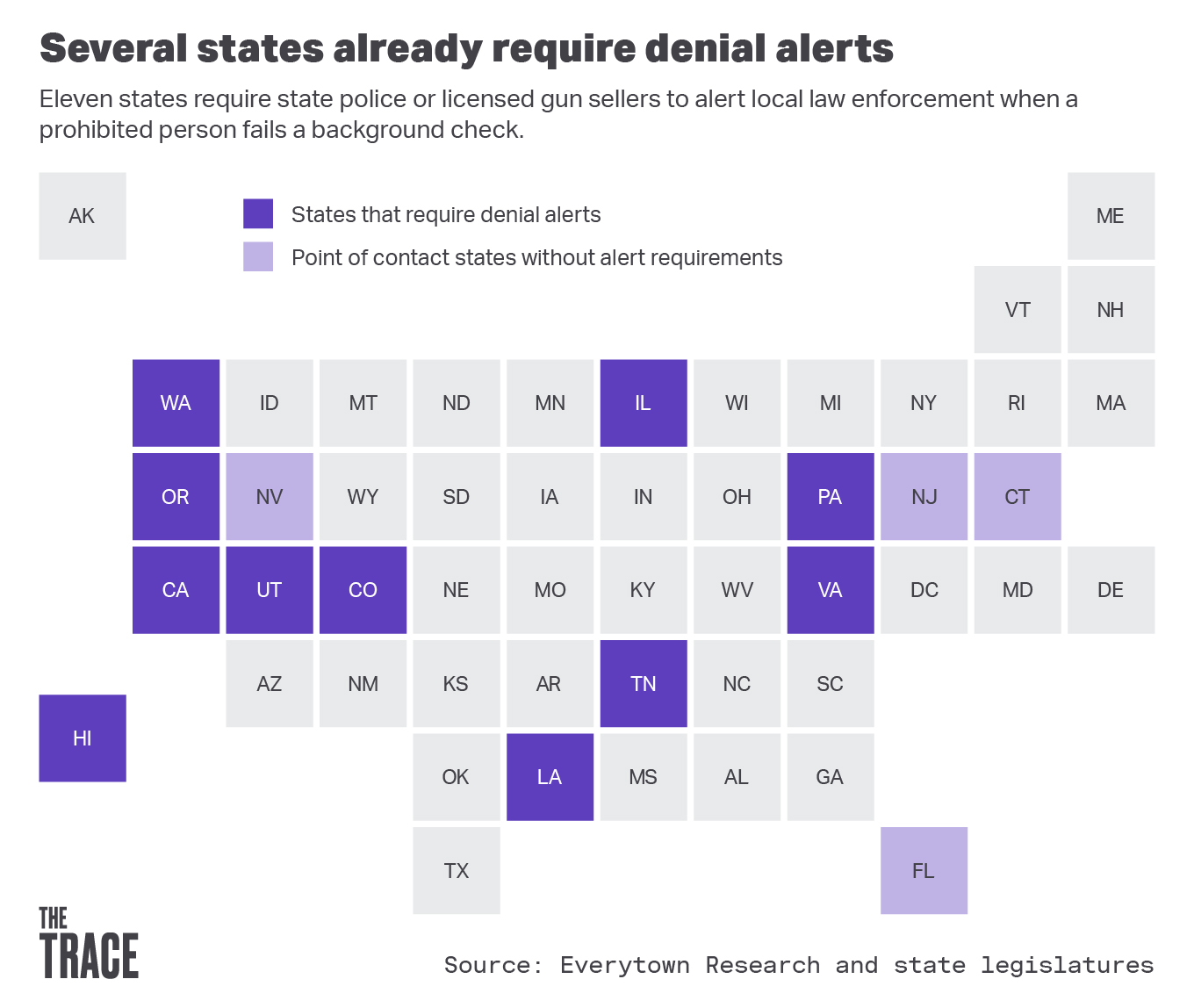When President Joe Biden signed a $1.5 trillion spending package to fund the government for the rest of the fiscal year, he also reauthorized the lapsed Violence Against Women Act.
As we reported last month, the reauthorization includes the NICS Denial Notification Act, which requires the Department of Justice to quickly notify state and local law enforcement when someone tries to buy a gun and fails the check.
One of our readers, who lives in a state that runs its own federal background checks, sent us an interesting question about the NICS provision:
Does the recently passed Senate Bill for VAWA Reauthorization require ALL states, including states like mine that don’t have a legal requirement to pass along this information to local law enforcement, to alert local law enforcement of these denials?
Why do some states perform their own background checks?
In most states (32 including the District of Columbia), federally licensed gun dealers are required to initiate a background check by contacting the FBI. The FBI then runs the buyer’s name through NICS — short for the National Instant Criminal Background Check System, which is comprised of criminal, mental health, and civil records — and informs the gun dealer of the result.
In 13 states, a state or local authority — typically the state police — conducts background checks. The reader lives in one of these full point of contact states, which, in addition to pinging NICS, often search other state records and databases, too, going beyond what federal law requires. The result is often a more holistic search that includes additional state-level convictions, mental health records, outstanding warrants, and domestic violence restraining orders that states may not have voluntarily reported to the federal databases.

In six other states, known as partial point of contact states, state agencies share responsibility by conducting background checks for handguns while the FBI handles background checks for long guns.
What is changing?
Currently, federal law does not require the DOJ to notify state and local authorities of NICS denials in the states that rely on the FBI to conduct all or some background checks. Without that information, it’s nearly impossible for state authorities to investigate or prosecute people who lie on their background check form in an attempt to get a gun, an illegal practice known as “lie and try.” Starting October 1, the NICS Denial Notification Act will require the DOJ to notify the relevant state, local, or tribal law enforcement authority within 24 hours when a prohibited person fails a background check performed at the federal level.
What does this mean for states that conduct their own background checks?
The new notification requirements don’t apply to states, but to the feds. In point of contact states, state authorities already know about the denial because they themselves issued it. “If they already have it, then it doesn’t make sense to require any sort of notice to be sent,” said Lindsay Nichols, the federal policy director at Giffords Law Center, a gun reform group.
The new law doesn’t require point of contact states to alert local police, because Congress largely avoids involvement in the relationship between state agencies and local police. It’s up to state legislatures or governors to figure out how state agencies would inform relevant local law enforcement agencies of denials. Many already have crafted such requirements.

For example, Illinois requires its State Police to report the name and address of any prohibited person who attempts to purchase a gun to the resident’s local law enforcement agency. Nine of the 13 point of contact states have similar requirements. Two other states, Washington (a partial point of contact state) and Louisiana (a non-point of contact state), require state police or gun dealers to report denials to local law enforcement authorities.


